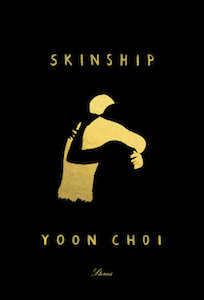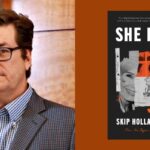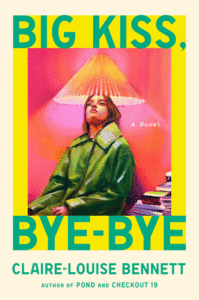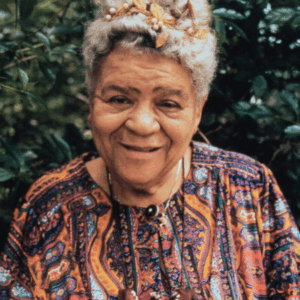
On Romanizing Korean Names and Writing Immigrant Stories in an Acquired Language
Yoon Choi Navigates the Complicated Path to Publication
In the lead up to publishing my short story collection, I would open an email of my marked manuscript and think of how the copy editor stands between an author and her future embarrassment. At such times, I would consider each act of copy editing as an act of extraordinary kindness. Once, in a story centering around an event that took place on Saturday, February 4, 2005, the copy editor told me that February 4, 2005, fell on a Friday. Another time, when I’d used the words “come” and “coming” in the same sentence, the copy editor opened a comment balloon to ask, “Echo OK?” I didn’t know whether this was some form of industry lingo for similar words used in proximity, but reading that, I felt the opposite of defensive. “Echo.” How gracious.
But sometimes emails with the subject line “Further Queries,” left me feeling anything other than relief and gratitude. Why the ambivalence? Or were the stories themselves ambivalent because they were immigrant stories, written in an acquired language about people who longed to speak in an inherited one?
The characters in my stories are Koreans, Korean immigrants, and Korean-Americans. Writing about them often requires portraying their English language encounters. Moments of miscommunication at banks and checkout counters. The sound of misplaced articles or swapped r’s and l’s. Little linguistic betrayals. In the story that opens my collection, “The Church of Abundant Life,” a Korean store owner passes a pack of cigarettes to a customer while telling her, “Smoking is very bad. When you go to quit.” I look for lines like these as I’m writing. They seem funny and poignant and authentic to a certain nonchalant hypocrisy I associate with my mother’s generation of Koreans. But seeing those lines during production, I wonder whether poignance—the pleasure of feeling that something is poignant—is not just another form of condescension. I know that my mom does not find her English slip-ups cute or funny, but examples of the deep diminishment that she lives with.
In another story of mine, “The Art of Losing,” a Korean grad student struggles to write his thesis in English. As I looked for a detail or gesture for the character, I suddenly had a decades-old memory of a Korean Sunday School teacher, face covered in smallpox scars, who memorized a page of the English dictionary every day and ate it. I stole that gesture for my character. But now, as I think about that old woman, I know there is something more than literary to be said about her hunger for language; her hunger is literal—that longing to hold in your mouth the capacity for your self-expression, like pulp and fiber, or chewing and swallowing.
Which brings me to this question. What is the conceit of the immigrant writer? Who is her subject and who is her reader? If English is power, as every immigrant knows, what are her responsibilities for legibility and articulation?
Long ago, when I was in a graduate program for creative writing, I didn’t care about such questions. I simply refused to write anything about Korea or Koreans. The project that deeply engaged me, in those days, was defining my tastes and standards in the service of my identity. To that end, my two literary heroes were Nabokov and Cheever. I wanted to write impressively or elegantly. I wanted to write about a character with a great American name like “Lo, plain Lo, in the morning, standing four feet ten in one sock… Lola in slacks… Dolly at school… Dolores on the dotted line.” Or to begin a scene of a fraught family dinner with a sentence as poised as, “She strikes a match and lights the six candles in this vale of tears.” Candles at dinner! Tears as a figure of speech! The tears in my family experience were passionate and pathetic, full of dredged history and assigned guilt and things you were never supposed to say to another person.
How young I was then, and how worshipful! But also, how fiercely stubborn in rejecting the notion that I could be the hero of my own life. During those workshop days, I never wrote a story with a single Korean character, but spent a lot of time looking up European- or American-sounding last names such as Moskowitz or Winston before swiveling to the nameless narrator.
Why?
I’ll say this, and it’s important. It was not due to humility. It may have even been the opposite of a self-effacing tendency. It may have been the quiet immigrant kid’s bashful and grandiose sense of her heritage as the thing she was expected to transcend.
If English is power, as every immigrant knows, what are her responsibilities for legibility and articulation?
What happened next? What always happens next. Years passed. I stopped writing while others from the workshop published their books. I entered and almost immediately dropped out of law school. I got married, had kids. One night, with two of the four of them still in diapers and one of them bound to wake at any moment, I sat down at an old laptop patched with duct tape. I don’t know why. I don’t know why I began to type what I called an exercise, a quick character sketch, or why this character would be a Korean grandfather, or why his name would be Han Mo-Sae. What I do know is that it is entirely possible to experience abrupt or stealthy changes in your sensibility. Possible for a picky eater to wake up one morning, middle-aged, with a sudden taste for ripe radish kimchi and milky ox stew made from the ox’s head, intestines, tongue, knee bones, knuckles, brisket, shank, and gristle.
The character sketch became a story. The story became a collection. The characters in the collection had names like Ji-won, Song-hee, Chun-ja, Minji. Last names: Kim, Lee, Park, Choi.
*
Some time after my short story collection was accepted for publication, I received a marked document from the editing team called, “Choi_9780593318218_all_2p_r1.” Among the standard corrections and requests for clarification was a query on the names of the Korean characters. “Global query: OK caps used for both parts of name throughout, rather than ‘Ki-tae,’ ‘Jae-woo,’ etc.?” There was also this message in a follow-up email, “Author: Please confirm that you prefer to render names Minji and Minyoung closed up as one word in this story only.”
As editorial queries go, these should have been easy to answer. Caps or no caps? Hyphen or no hyphen? There were no house rules for romanizing Korean names, and no consistent practice in general usage either, so it was a simple matter of author preference. But was it simple? Or was it interesting?
Korean names are highly conventional. The family name, which comes first, usually consists of one (rarely two) phonetic units. The given name that follows usually consists of two (rarely one or three) phonetic units. Written out, the typical Korean name is made up of three syllable blocks. Actually, all Korean is written in syllable blocks, with no system of capitalization, and no use of the hyphen, although the wavy hyphen (tilde) is used to create a “lighthearted” effect when texting, like so~
While Korean names themselves are conventional, their romanization is often random, idiosyncratic, and circumstantial. A name like Jae-woo might be written in English as Jae-woo, Jae-Woo, Jae Woo, Jaewoo, or Jae (first name) Woo (middle name). Even something like “Jay” is possible, depending on who is filling out the N-400 application or registering the child for school. The government agency responsible for resolving such matters, the National Institute of Korean Language, has this to say about hyphenation—although the statement is nearly indecipherable: “As a rule, syllables in given names are not seperated (sic) by hyphen, but it is admitted to use a hyphen between syllables.”
Even The New York Times permits inconsistency in romanizing Korean names. These days, the paper seems to prefer not to capitalize after the hyphen, as in this June 2021 article, “Kim Jong-un Lost Weight. No One Knows How or Why.” But in the byline of that article, the second syllable of the reporter’s name is capitalized: Choe Sang-Hun. And earlier Times coverage often dispensed of the hyphen altogether, routinely referring to Kim Jon-un’s dad as Kim Jong Il.
Of course in my name, Yoon, there are no issues of hyphens or spacing or capitalization. It was my mom’s decision to drop the second syllable during immigration, because she figured that the second syllable, “Kyung,” would be too hard for Americans to pronounce. She probably wasn’t wrong about that. In fact, I myself couldn’t say “Kyung” and—in a closely guarded family secret that I can’t believe I’m about to divulge—called myself “Yoon Goo” until I hit kindergarten.
Complicating things further, my sister is also Yoon Choi. In Korea, siblings often share a phonetic unit: my sister is Yoon Hee to my Yoon Kyung. But here in America, when you start dropping those second syllables, sibling names can suddenly look identical. Believe me, I know exactly how weird that can seem to an American. I can predict exactly how I’d feel if someone were to say: “Hi, I’m Jennifer, and this is my sister, Jennifer.” The awkwardness, the disconcertion, the reflexive calculation. Is the joke on me or is the joke on you?
The other day, when I sign for a delivery from Penguin Random House, I get 240 opportunities to see my name in print. There are, in 20 boxes, 240 copies of my book, and on each book cover, the author’s name as the cover designer has rendered it: small-caps, gold-colored, with a textured effect as though it had been written with crayon. Yoon Choi. The name I’ve lived with for all of my American life. Short (just four letters and then another four letters) but long on explanation. Sorry, can you repeat that? Can you spell that? How do you pronounce that? Come again? And still, the coffee cup might contain a latte for “Uyoon” or “Yooom” or “June.” As I prepare to sign these books, it occurs to me that at various moments pre-publication, I might have considered using a pen name. I could’ve had almost any pen name I wanted! It could’ve been really original! Or—even better: really ordinary!
And yet, what is ordinary? In writing that word, and in writing this piece, I’m struck by how deeply English has become the language of my consciousness, how simply I consider it neutral. But no language is neutral. All language is subjective and, to a certain extent, privileged. The Korean that you hear in hair salons and churches and in other Korean people’s houses is totally presumptuous, full of Konglish words and onomatopoeia, toggling spontaneously between two types of first-persons—the formal I and the humble one, making nuanced and sometimes ironic use of four (of seven) speech levels.
Yeah, no. I probably wouldn’t have used a pen name—even if I’d come up with a good one. I think back on the long, obtusely long, process that brought me to these stories, these characters, and I realize that for me, the tasks that lie ahead have nothing to do with persona or alter-ego. I think of something Janet Malcolm once wrote in “Thoughts on Autobiography from an Abandoned Autobiography.” “I have withheld my affection,” she says about her young self, her tedious self, her known self, her self as subject, her memories.
Those words stick with me. I am trying not to do that.
__________________________________

Skinship is available from Alfred A. Knopf, a division of Penguin Random House LLC. Copyright © 2021 by Yoon Choi.
Yoon Choi
Yoon Choi was born in Korea and moved to the U.S. at the age of three. She has an MA from Johns Hopkins and is a former Stegner Fellow at Stanford. Her stories and essays have appeared in New England Review, Michigan Quarterly Review, Narrative Magazine, and The Best American Short Stories 2018. She lives with her husband and four children in Anaheim, California.



















